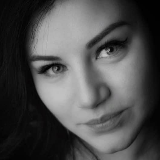Hair loss in women is already a well-hiped topic discussed throughout their lives. But could menopause be a reason? How is my hair getting affected by menopause? Yeah, it might seem a little offshore, but it is how it is. Besides, there are loads of other factors that could be a reason for your hair loss, such as stress, nutritional deficiencies, hairstyling habits, etc.
The other day, in the middle of the conversation, my sister said that her hair had become dry and was falling a lot, which caused a lot of stress. The point we mutually stopped was that her hair was falling because of the stress, and she was stressed because her hair was falling. So, what could we do?
Before I tell you what we can do, let me introduce myself. I’m Dr. Karen Pike, the founder of Simply Menopause, which was founded with the purpose of helping women understand and talk about their symptoms and acknowledge them. There are various articles written by me that you can read if you are someone going through menopause or want to know more about it.
Menopause and hair loss: The connection?
Menopause is a natural biological process that marks an end to a woman’s reproductive years, typically occurring in her late 40s to early 50s. Apart from the well-known symptoms like hot flashes, mood swings, vaginal dryness, etc., hair loss can also be a distressing concern for many women during this transitional phase of life.
Hair loss during menopause is often referred to as ‘menopausal alopecia.’ It typically manifests as thinning hair, particularly at the crown or along the parting line, rather than complete baldness. While menopause itself is not the direct cause of hair loss, the hormonal fluctuations that occur during this time can contribute to changes in hair growth patterns.
Some women may even experience pubic hair loss due to menopause, although it is not generally discussed. Just as hormonal changes affect the hair follicles on the scalp, they can also impact hair growth in other areas of the body, including the pubic region. Decreased estrogen levels during menopause can lead to a reduction in pubic hair density and thickness for some women.
Hormonal Changes: The Culprit
Estrogen and progesterone are two key hormones that play a crucial role in the majority of functions of a woman’s body, including hair health. During menopause, levels of these hormones decline significantly, leading to various changes that can affect the hair growth cycle.
Estrogen: Along with the many functions, this hormone is also known to promote hair growth and prolong the growth phase of the hair follicles. As estrogen levels decline, the hair cycle may become shorter, resulting in thinner and more brittle hair.
Androgens: While estrogen levels decrease, the relative levels of androgen may remain consistent or even increase. Androgens can make the hair follicles smaller, leading to androgenetic alopecia.
Thyroid Function: menopause can also coincide with changes in thyroid function, as the thyroid plays a crucial role in regulating metabolism and hair growth. Thyroid imbalances can further worsen hair loss during menopause.
Managing Menopausal Hair Loss
While menopausal hair loss can be distressing, several strategies can help manage the condition and promote healthy gut growth:
Healthy Lifestyle
Adopting a diet that is rich in vitamins, minerals, and proteins can support hair health. Regular exercise and stress-reduction techniques such as yoga or meditation can also help mitigate the effects of stress on hair loss.
Topical treatments
Over-the-counter minoxidil (Rogaine) and prescription-strength formulations can help stimulate hair growth and slow down the progression of hair loss in some cases.
Scalp Care
Using mild shampoos and avoiding excessive heat styling, along with gentle scalp massage and proper hair care practices, can help maintain scalp health and promote hair growth.
Consultation with a specialist
If menopausal hair loss persists or worsens despite lifestyle modifications and over-the-counter treatments, consulting a dermatologist or trichologist (hair specialist) can provide personalized recommendations and treatment options.
Keep it Natural
There are hundreds of products that claim to restore your hair to its original form, so to speak. What I would suggest is simply to avoid these, as they may further damage your hair or they might even fix it, who knows. But a wise choice would be to not use them.
Also, keep your hair away from all those dryers, curlers, or straighteners. Extension or any kind of styling method may weaken your hair and result in early hair loss.
Conclusion
Menopausal hair loss, including pubic hair loss, is a distressing symptom experienced by many women during this transitional phase of life. While hormonal changes play a significant role in its development, a combination of genetic predisposition, stress, nutritional deficiencies, and other factors can contribute to the condition.
By adopting a healthy lifestyle habit, exploring treatment options, and seeking guidance from healthcare professionals, women can effectively manage menopausal hair loss and maintain optimal hair health during this phase.








